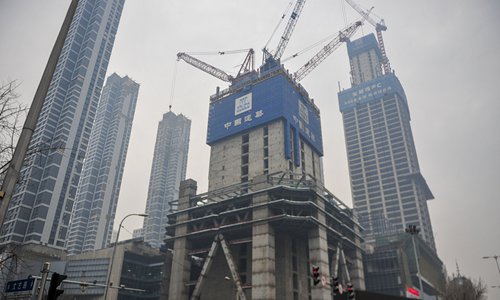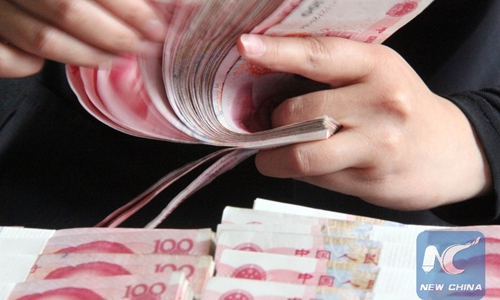Budget deficit rate might break ‘safety line’ of 3% in 2020: economists
Budget deficit rate might break ‘safety line’ of 3% in 2020

Photo: VCG
A Chinese government official's description of the country's current fiscal state as "tight balance" is read as a sign that China's budget deficit rate might break the widely considered safety mark of 3 percent this year, Chinese economists say.
The country's financial sector is facing the dual pressure of decreasing fiscal revenues and rising expenditures after the outbreak of the novel coronavirus, Finance Minister Liu Kun wrote in an article published by Qiushi, a magazine affiliated with the Communist Party of China's Central Committee, according to the ministry's website on Sunday.
As a result, the domestic fiscal situation will maintain a state of "tight balance" for some time to come, Liu wrote.
"The new wording of China's financial state shows that China's fiscal balance has reached a critical point… that is, China's deficit rate might surmount the 'safety line' of 3 percent this year," Dong Dengxin, director of the Finance and Securities Institute at Wuhan University of Science and Technology, told the Global Times.
Three percent is considered by many as the base for a safe budget deficit rate. The government set a 2.8 percent rate target for 2019.
"It's hard to determine the true repercussions of an above-3 percent deficit rate, but I think it would be acceptable to the economy if it just takes place for short period of time," he said.
China's economy, already facing downward pressure, is being hit by the severe virus crisis which saw more than 1,600 people die. The disease will also be a ferocious headwind for the country's growth as manufacturing is delayed and consumption is crippled.
According to Dong, it is inevitable for China to cling to a positive fiscal policy to offset the negative impact of the coronavirus, and this year's fiscal expenditure should see a large increase compared with last year.
Liu also wrote that China will insist on a policy of tax cuts to help reduce business costs. According to Liu, the government will make sure that taxes on major industries like manufacturing will be "significantly" reduced this year, while taxes on industries like architecture and transportation will be reduced to some extent.
But China is also aware of the potential risks in such a fiscal imbalance, as it has vowed to cut unnecessary spending.
"It won't be feasible to adopt a loose fiscal policy by purely expanding fiscal expenditure. Instead, policies and capital must be used in a more effective, precise and targeted way," Liu wrote.
According to him, the central government will set an example by largely cutting spending on non-essential projects and strictly curbing expenditures on new ones.
Local governments will also be asked to reduce their regular expenditures and withdraw funds from projects that progress slowly or are hard to implement. They are also required to determine expenditure scales based on income, instead of spending money in a haphazard way.
"China wants to make sure that local governments are not saddled with rising debts by randomly splashing out at this critical period," said Cong Yi, a professor at the Tianjin University of Finance and Economics.



